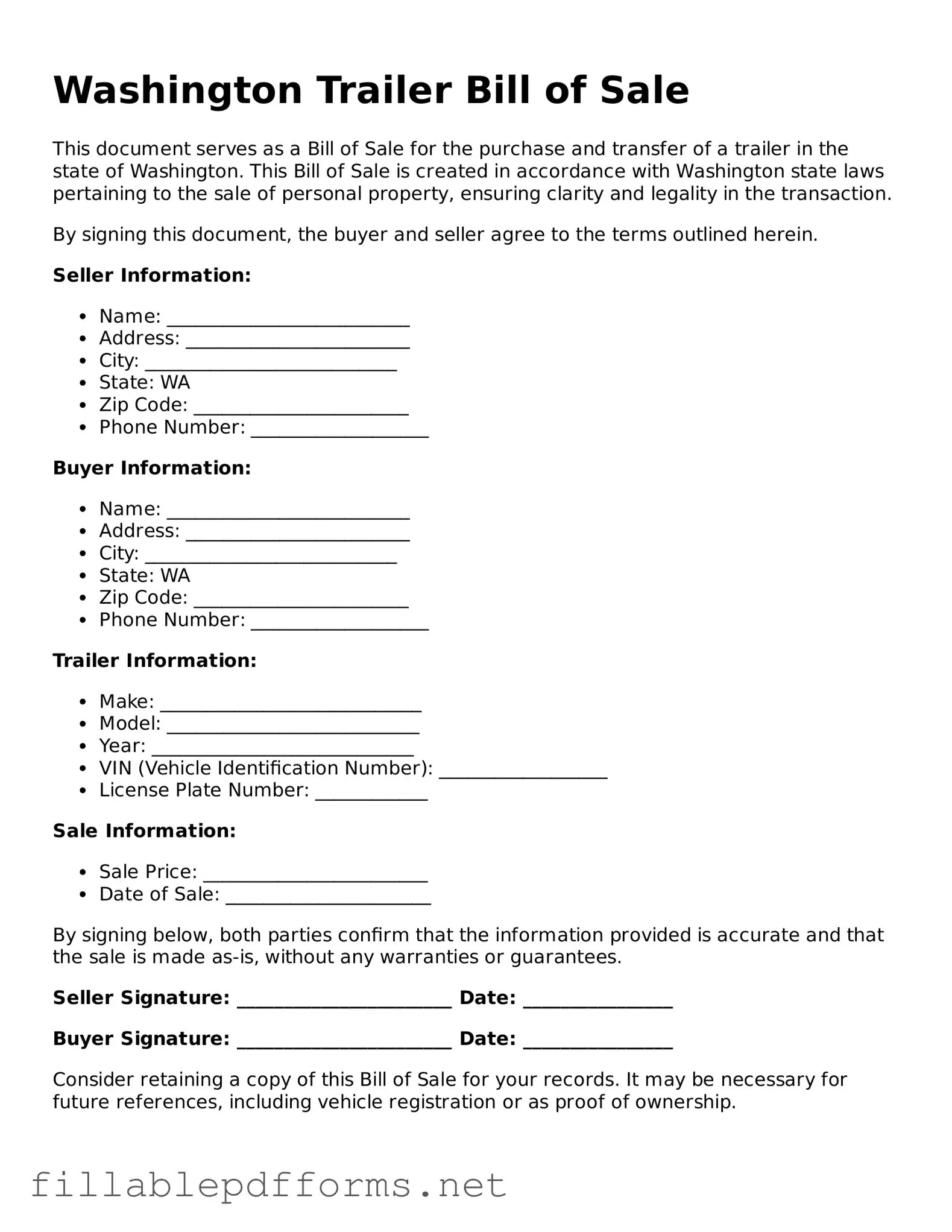Attorney-Verified Trailer Bill of Sale Form for Washington State
The Washington Trailer Bill of Sale form serves as a legal document that facilitates the transfer of ownership for trailers in the state of Washington. This form not only records essential details about the trailer and its seller but also provides the buyer with proof of purchase. Understanding its components and significance is crucial for anyone involved in the buying or selling of trailers.
Launch Editor Here

Attorney-Verified Trailer Bill of Sale Form for Washington State
Launch Editor Here

Launch Editor Here
or
▼ Trailer Bill of Sale PDF
Almost there — finish the form
Complete Trailer Bill of Sale online fast — no printing, no scanning.